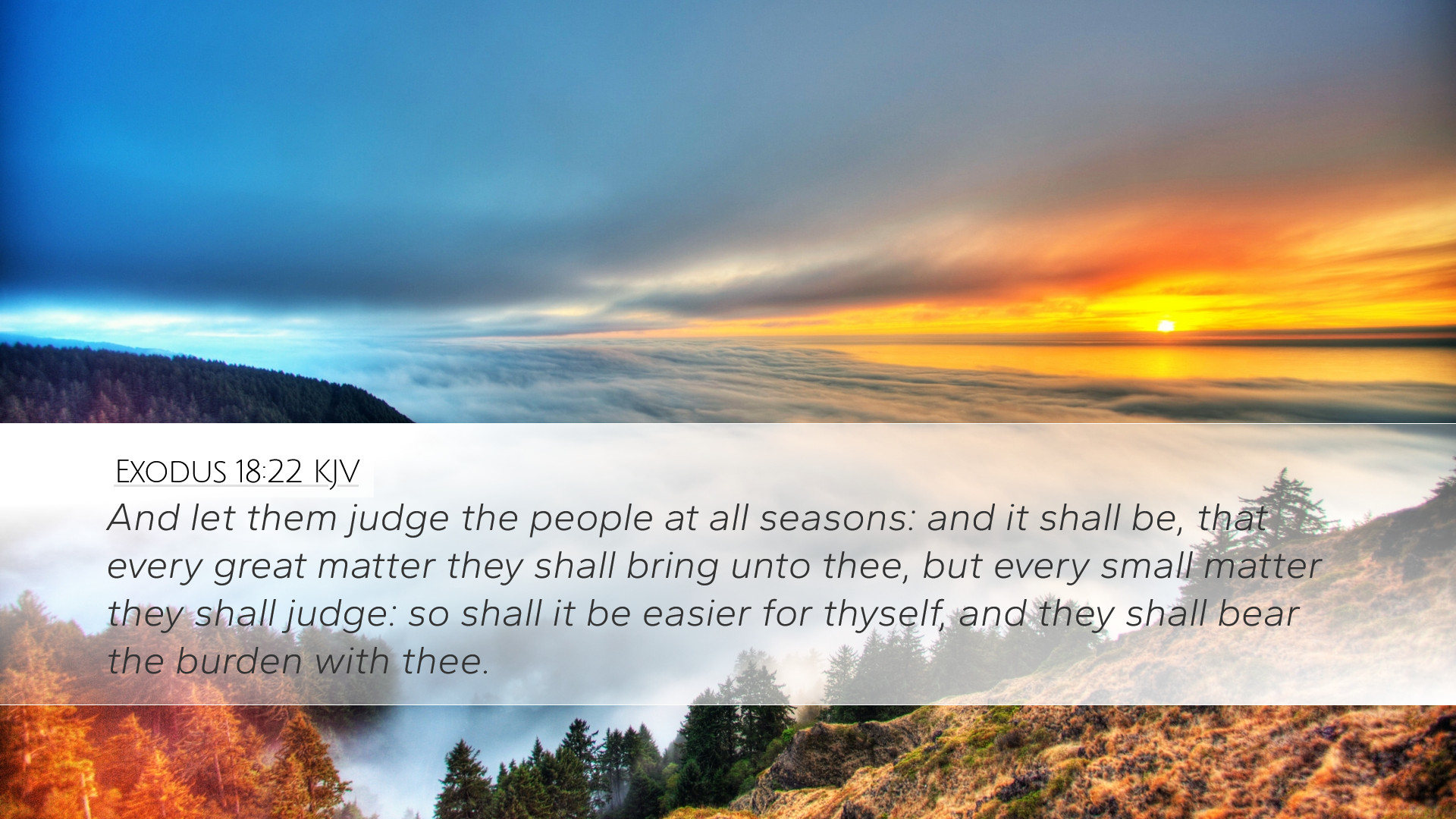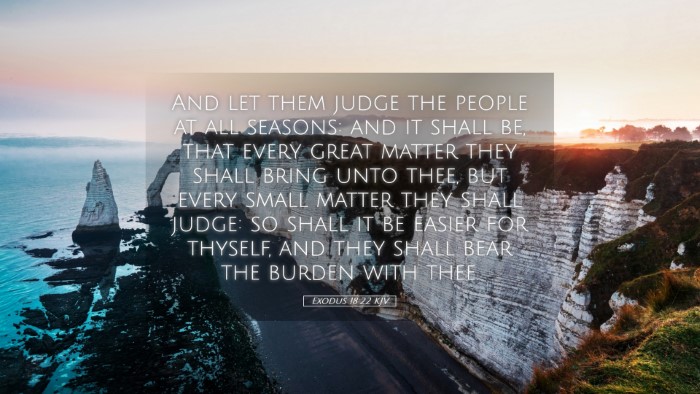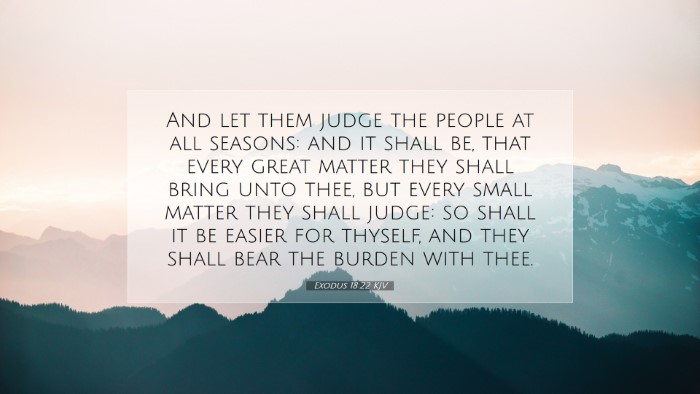Commentary on Exodus 18:22
Verse: "And let them judge the people at all seasons: and it shall be, that every great matter they shall bring unto thee, but every small matter they shall judge: so shall it be easier for thyself, and they shall bear the burden with thee."
Introduction
This verse appears within the context of Jethro's counsel to Moses regarding the administration of justice among the Israelites. This counsel not only addresses the immediate practical needs of governing a large people but also offers profound insights into leadership, delegation, and the distribution of responsibility within a community.
Contextual Background
Moses found himself overwhelmed by the demands of leadership as he judged the people from morning until evening. Jethro, his father-in-law, observed this and provided wisdom that would change the structure of governance among the Israelites. The passage is crucial for understanding how leaders can effectively manage responsibilities and the importance of wise counsel.
Insights from Matthew Henry
Matthew Henry highlights that this verse illustrates the principle of delegation in leadership. He emphasizes that even the most capable leaders, like Moses, are not meant to shoulder every burden alone. By distributing responsibilities among capable individuals, the community can function more effectively.
- Leadership Structure: Henry points out that God’s people require a system of leadership that is collaborative rather than solitary. The establishment of judges reflects God's design for order.
- Burden Sharing: He mentions the necessity of sharing burdens, suggesting that this model fosters unity and efficiency in leadership.
- Criteria for Judgment: The distinction between great and small matters serves as a guideline for prioritization in decision-making.
Insights from Albert Barnes
Albert Barnes provides a practical approach to understanding this verse, elaborating on the importance of maintaining an effective judicial system. He notes that Moses is encouraged to appoint judges who can manage daily issues, which allows him to focus on more significant matters.
- Practical Application: Barnes argues that this system is not only beneficial for Moses but is a timeless principle applicable to modern leadership settings in churches and organizations.
- Hierarchical Governance: He suggests that the passage implies a hierarchical structure within governance, where leaders must recognize their limitations and the roles of others.
- Delegation of Authority: The delegation to judges serves as a model for distribution of authority, emphasizing trust in others to carry out responsibilities.
Insights from Adam Clarke
Adam Clarke focuses on the theological implications of this verse and its relevance for understanding God's design for governance. He argues that this counsel reflects God's wisdom, as it promotes a system that is both equitable and manageable.
- Divine Order: Clarke emphasizes that God’s order is reflected through diverse roles within leadership, each fulfilling a necessary function.
- Spiritual Oversight: He notes that a leader’s primary role must be spiritual, handling matters of significant consequence while trustfully delegating lesser issues.
- Encouragement to Leaders: Clarke suggests that this passage should encourage leaders to seek counsel and embrace help from others to avoid burnout.
Theological Themes
Exodus 18:22 raises several important theological themes relevant for pastors, students, theologians, and Bible scholars:
- Delegation and Authority: The principle of delegation in leadership demonstrates that authority can and should be shared, reflecting community and teamwork.
- Servant Leadership: Emphasizing the responsibility leaders have towards their followers, exemplifying humility and the willingness to bear burdens together.
- God’s Guidance in Leadership: The passage reaffirms the necessity of seeking divine guidance in the structuring of leadership roles within the community of faith.
Practical Applications
For modern-day application, leaders in various ministries can glean valuable insights from this verse:
- Recognize Limits: Understanding personal limits is essential for effective leadership. Avoiding burnout should be a priority for those in positions of influence.
- Empower Others: By empowering others and sharing responsibilities, a leader can create a more responsive and dynamic community.
- Seek Wise Counsel: Leaders should not shy away from seeking wisdom from those with experience, as did Moses with Jethro.
Conclusion
Exodus 18:22 provides an enduring framework for understanding the dynamics of leadership within a faith community. By looking to public domain commentaries from revered authors such as Matthew Henry, Albert Barnes, and Adam Clarke, one can appreciate the profound and practical implications of this succinct verse. The themes of delegation, burden-sharing, and wise counsel echo through the ages and remain critically relevant for contemporary leaders seeking to honor God through their service.


